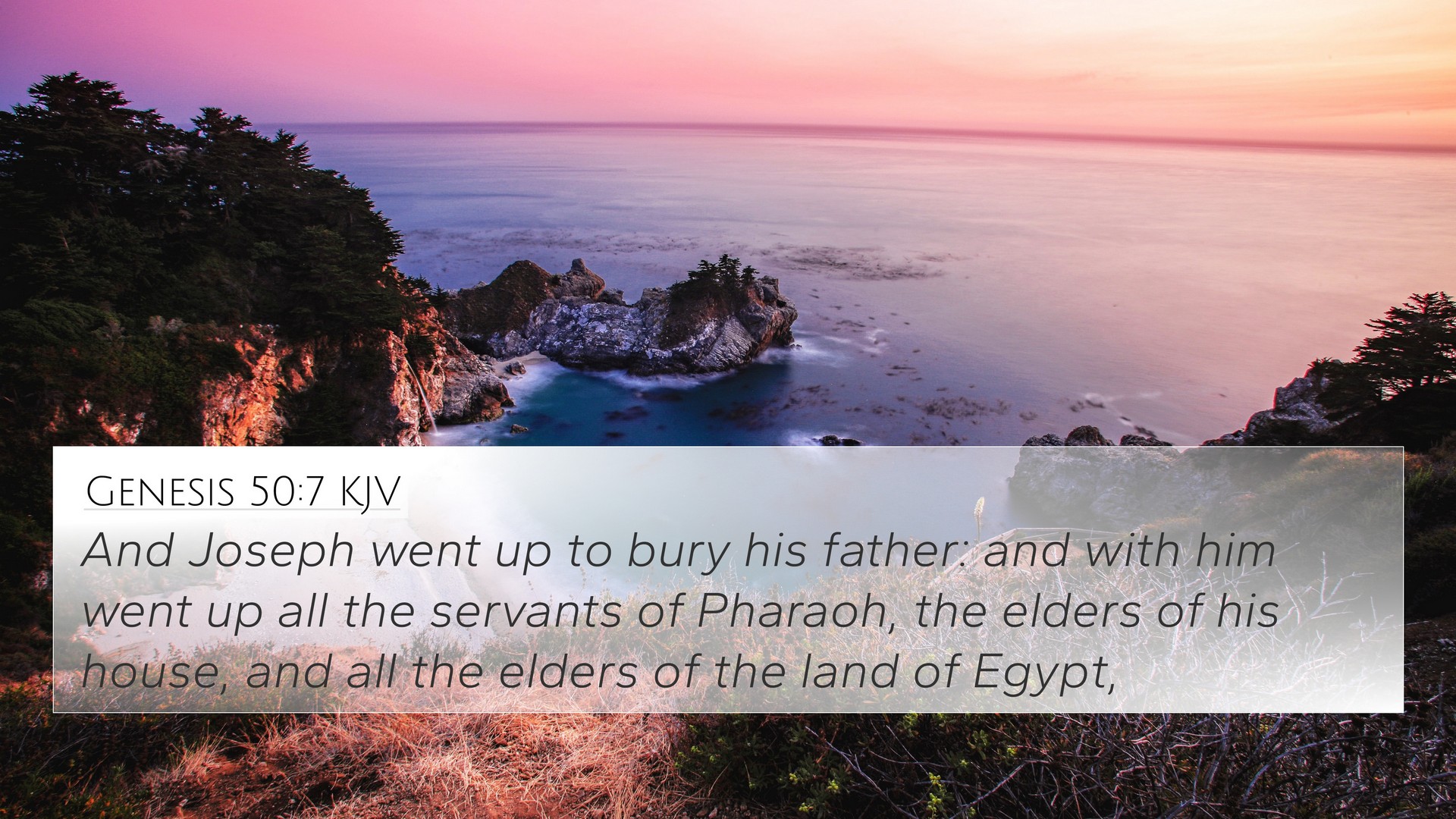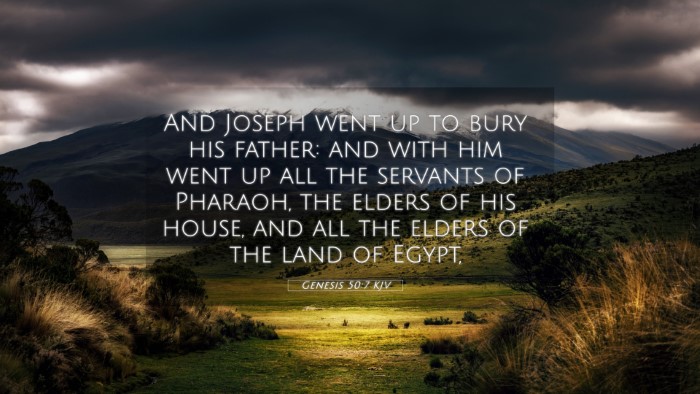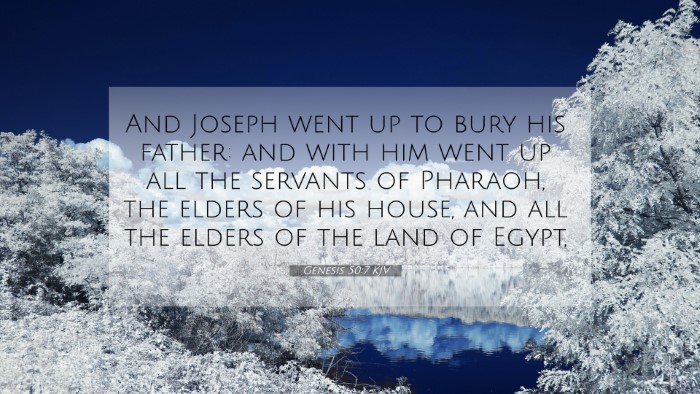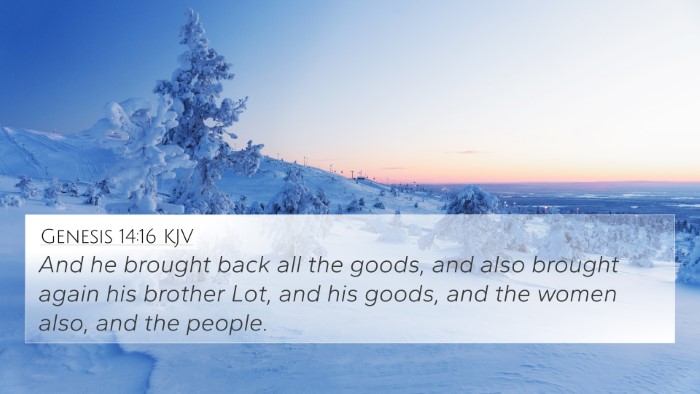Understanding Genesis 50:7
Genesis 50:7 states: "And Joseph went up to bury his father; and with him went up all the servants of Pharaoh, the elders of his house, and all the elders of the land of Egypt."
Summary of the Verse
This verse occurs towards the end of the Book of Genesis, depicting a significant moment in the narrative of Joseph and his family. Following the death of Jacob, Joseph takes charge of the burial rites, showcasing his respect and love for his father. This act is notable as it not only underscores familial duty but also indicates Joseph's position within Egyptian society, as he leads a significant procession accompanied by Pharaoh's servants and the elders of Egypt.
Interpretative Insights
Commentators provide various insights into this verse:
-
Matthew Henry:
Henry emphasizes the importance of honoring one's parents in death as in life. He notes that Joseph’s actions reflect not only his personal grief but also the respect prevalent in the culture regarding burial practices and lineage. The attendance of Egyptian leaders signifies the high regard in which Joseph was held, indicating the political unity and respect for family duties.
-
Albert Barnes:
Barnes remarks on the significance of Joseph's rise from a position of slavery to a revered leader. By leading this large and dignified procession, Joseph exemplifies the fulfillment of God’s promise and his role as a reconciler of his family against the backdrop of previous betrayals and hardships. This moment is pivotal in demonstrating the power of forgiveness and redemption.
-
Adam Clarke:
Clarke provides a cultural context, highlighting Egyptian burial customs and the essential nature of mourning in that society. Joseph’s act of burying Jacob with grandeur symbolizes closure in Jacob’s life and a transition for the family. Clarke also suggests that such a public farewell would solidify Joseph's influence and legacy in Egypt, maintaining familial ties even in death.
Cross-References
This verse is connected to several Biblical passages that enhance our understanding of its themes. Here are some notable cross-references:
- Genesis 49:33: Jacob's final words and blessings to his sons before his death.
- Genesis 46:4: God's assurance to Jacob about going to Egypt and being with Joseph.
- Exodus 13:19: The carrying of Joseph's bones, indicating the significance of his heritage.
- 1 Kings 2:15: A parallel of respect for a father's wishes in preparations for burial.
- 1 Corinthians 15:55-57: Discusses victory over death, reflecting themes of burial and resurrection.
- Hebrews 11:22: Highlights Joseph's faith regarding his bones, emphasizing his belief in God's promise.
- Proverbs 10:7: "The memory of the just is blessed," connecting the significance of Joseph's legacy.
Thematic Connections
In terms of thematic connections, this verse embodies several crucial biblical themes:
- Family Loyalty: Joseph's dedication to his father shows the importance of familial bonds.
- Respect for the Dead: The cultural mandates regarding burials reflect a profound respect for life and legacy.
- Redemption and Forgiveness: Joseph's journey from betrayal to reconciliation encapsulates the ultimate narrative of redemption.
- Leadership and Influence: Joseph's leadership role amidst mourning illustrates the multifaceted aspects of his character.
- God's Faithfulness: Every act in this chapter can be seen as a testament to God's promises throughout Joseph's life.
Conclusion
Genesis 50:7, while seemingly a straightforward narrative of burial, encapsulates a myriad of themes including family loyalty, cultural respect, and personal redemption. By exploring cross-references and thematic connections, readers can gain deeper insights into the grandeur of God's design throughout the Scriptures.



